If you smoke weed, you’ve been there. It’s the moment when, after a big hit of something skunky, your eyes flood with light and your heart starts racing. Maybe your scalp sweats a little bit before your chest tightens. Then the mind starts racing. “Do I look weird?” you might think before wondering, “Shit, did I pay my rent? I need to call my mom. Oh, no, Where’s my phone?” By then, you’re perma-grinning, on your way to a full-blown weed-induced freakout.
Anxiety — whether physical, mental, or some combination thereof — is a common unwanted side effect of smoking cannabis. For some people, the onset of anxiety after smoking weed is so unmanageable and unpleasant that they choose to abstain altogether. Others find that they suddenly have paranoia after years of smoking without it.
It doesn’t happen to me too often anymore. But on occasion, I notice it after I smoke certain Sativa strains that can make me feel more energized. In my own body, I notice the tell-tale signs: swollen eyes, dry mouth, chest tightening, and increased heart rate. The next thing I know, my thoughts are running a million miles a minute, crisscrossing all over my brain.
These reactions are obviously bummers, but there’s a light at the end of the tunnel for some people, and much of it has to do with a “mind over matter” mindset, as well as learning how to properly dose. “A few things happen physiologically that cause us to feel anxious when smoking weed,” says Emma Chasen, cannabis educator and an industry consultant at Eminent Consulting. “They’re all seemingly caused by THC,” she says, referring to the compound in cannabis that gets people high.
This is correct, says Dr. Jamie Corroon, medical advisor at CV Sciences and the medical director at the Center for Medical Cannabis Education. He says this anxiety response is related to THC use, though it is largely dose-dependent.
“The anxiety that people report when using THC is typically the result of taking too much. Low doses do not cause anxiety. In fact, they may reduce it,” Corroon says, referring to studies performed that show low doses of THC to be effective in treating anxiety.
This anxiety-provoking effect, while caused in some people by THC, is not a constant across all people who ingest it. “From a psycho-emotional standpoint, the discomfort may simply be a result of THC-induced changes in perception,” Dr. Corroon tells us. “Some people feel a loss of control, which they perceive as negative or dangerous. Thus, they experience an increase in heart rate, breathing patterns, and a sense of pending doom.”
In other words, a lot of this anxiety has to do with physical changes caused by THC intake and the brain’s sometimes confused and hyperactive responses to them. THC is a vasodilator, which means it opens up blood vessels and allows blood to move throughout the body more quickly, increasing the heart rate. This increased heart rate, alone, can lead some to feel like they’re losing control, heightening the mind-body connection.
“THC interacts with areas of our brains that are responsible for both euphoria and anxiety. When we consume too much THC,” Chasen says, noting that the dose at which this occurs will be different for everyone, “the brain quickly switches from happy-go-lucky to imminent threat level danger.” She notes that this can occur even at small doses, so the old adage of “go low and slow” still holds when deciding which dose is best for you.
After the brain determines a threat via the amygdala, that signal gets sent to the hippocampus and the prefrontal cortex. The hippocampus gives context to anxiety and the prefrontal cortex will decide what to do about it. “These areas of the brain often act as safeguards against THC-related anxiety because they can logically assess that there is no real threat and therefore suppress the anxiety. However, at some dose of THC, the hippocampus and prefrontal cortex will decide that there is danger and start panicking. This is most likely due to the suppression of GABA, a neurotransmitter in the brain. And this is when you will start to feel anxious,” Chasen explains.
For those worried about becoming anxious when smoking weed, Chasen and Dr. Corroon offer a few tips below. Through personal experience, I’ve found that mindful breathing exercises, taking CBD, and learning how to talk myself out of a tough spot were key to managing weed-induced anxiety — all of which our experts called out specifically.
Check-in With Yourself Before Consuming Cannabis
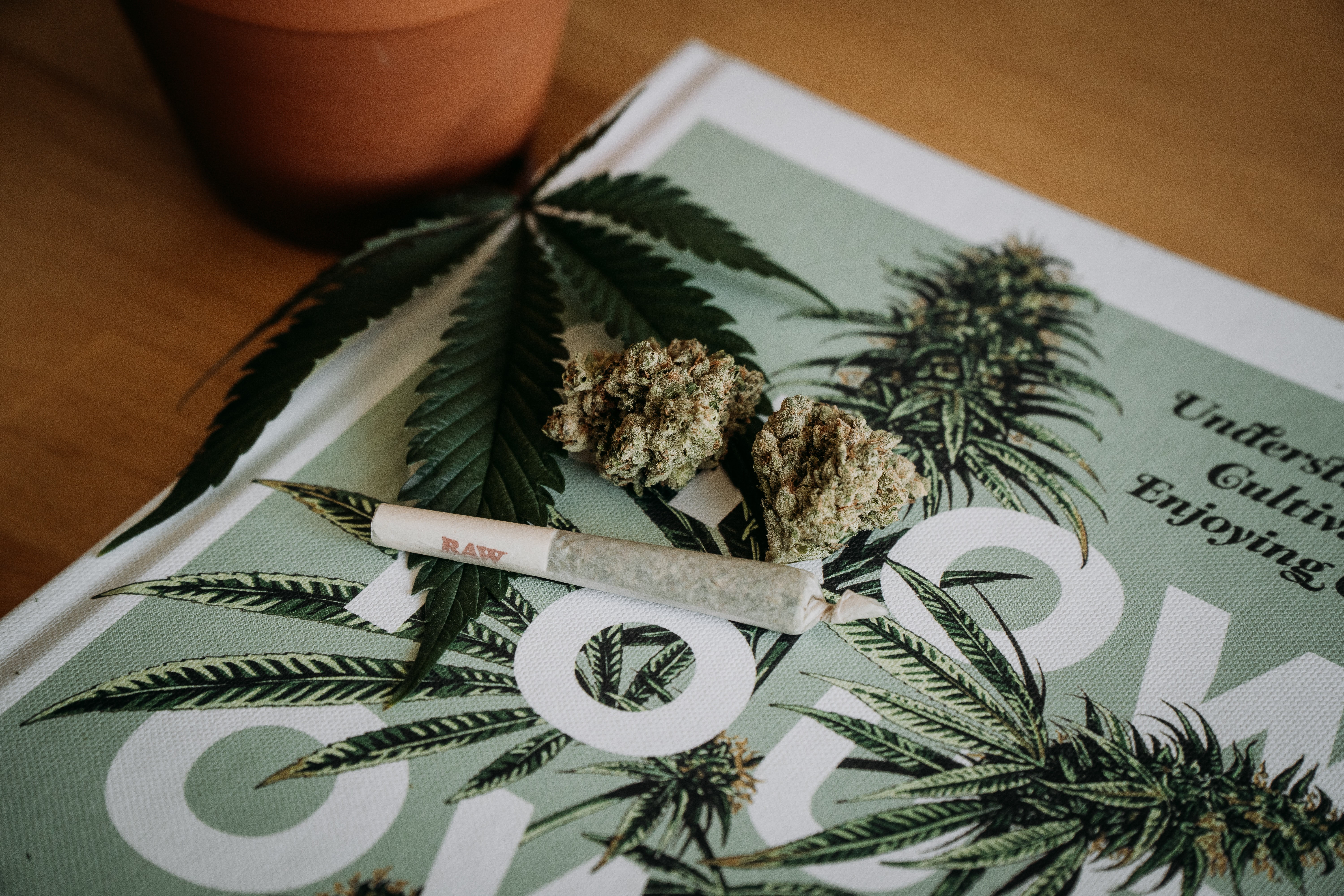
Chasen begins with, “When smoking weed, make sure to sit with yourself and run an internal diagnostic on how you are feeling mentally, emotionally, physically, and spiritually.” Chasen then drops some example questions: “Is your body in pain? Are you feeling connected or disconnected? Are you feeling stressed or anxious? Are there any emotions you’re suppressing? Where does your mind drift when you let it?”
She also suggests setting goals for the experience, which include identifying how you want to feel or nailing down anything you want to explore internally or externally while high. For those who are particularly mindful, logging these answers in a journal may also help.
Lean Into The Concept Of “Set And Setting”

“Cannabis is a medicinal plant and therefore, the ritual of consumption is a large part of the experience; making sure your set and setting — where you are at and who you are with — is in line with the type of experience you want to have,” Chasen explains. “When you are under the influence of cannabis, sensitivity and vulnerability are often heightened. Anxiety can occur when you become high and look around to realize you don’t actually like the people you’re with. Therefore, it is important to consume where you feel safe and comfortable with people you know and trust.”
Move Your Body And Perform Mindful Breathing Exercises

Chasen then explains that this helps people “to get out of their heads and back into their bodies.” She continues, “It can help to do some breathing exercises: inhale for seven seconds, exhale for ten seconds. Do some stretching as well.”
Talk Through The Physiological Process Of The Anxiety
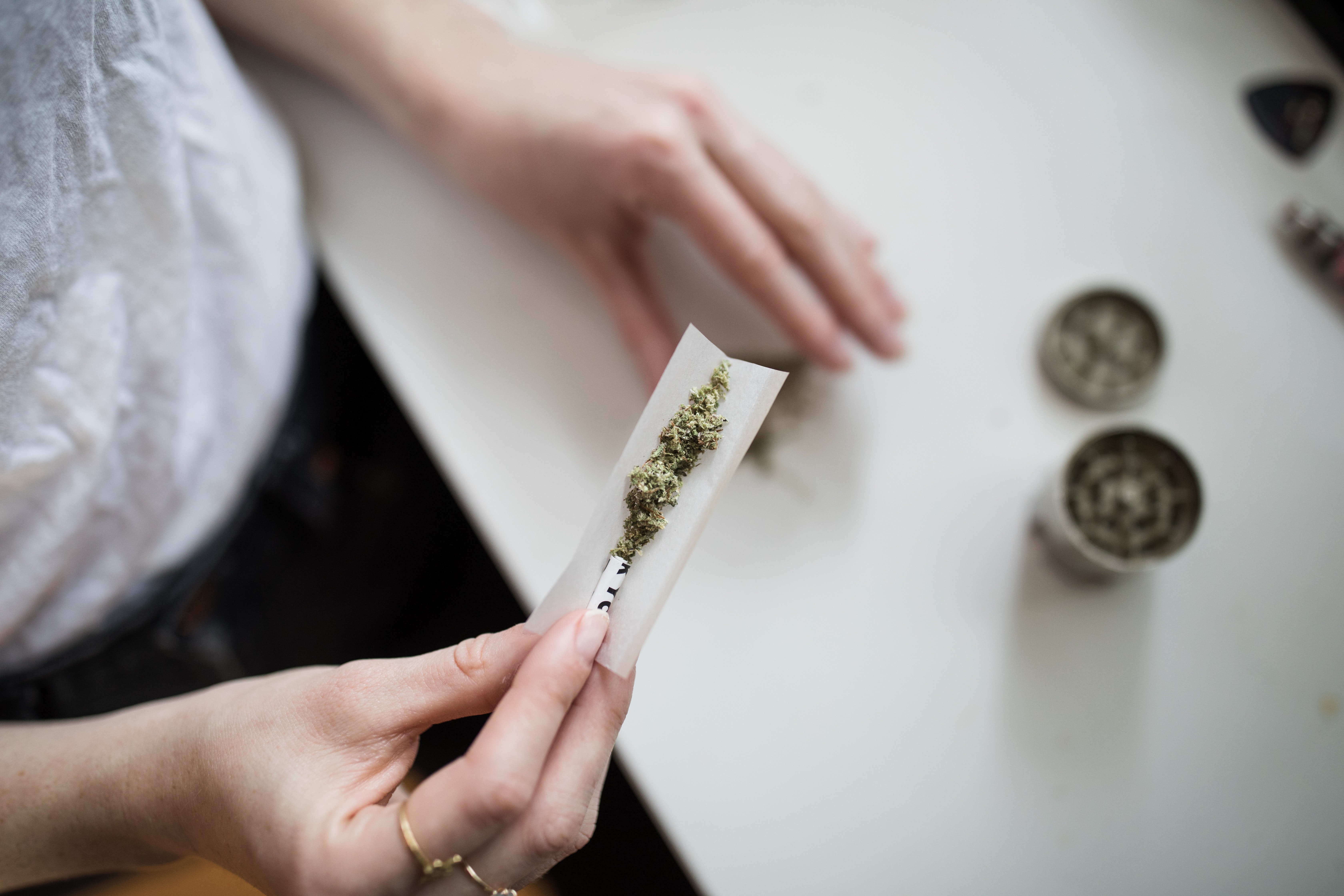
“Talk to your hippocampus and prefrontal cortex.” Chasen explains how to do this, “Tell these parts of your brain that there is no real danger and no need to freak out. There’s just a GABA imbalance happening, that’s all. This may seem silly, but I’ve used this particular technique with myself and others experiencing THC-mediated anxiety and it really does help to get your mind back in check.”
Consider CBD
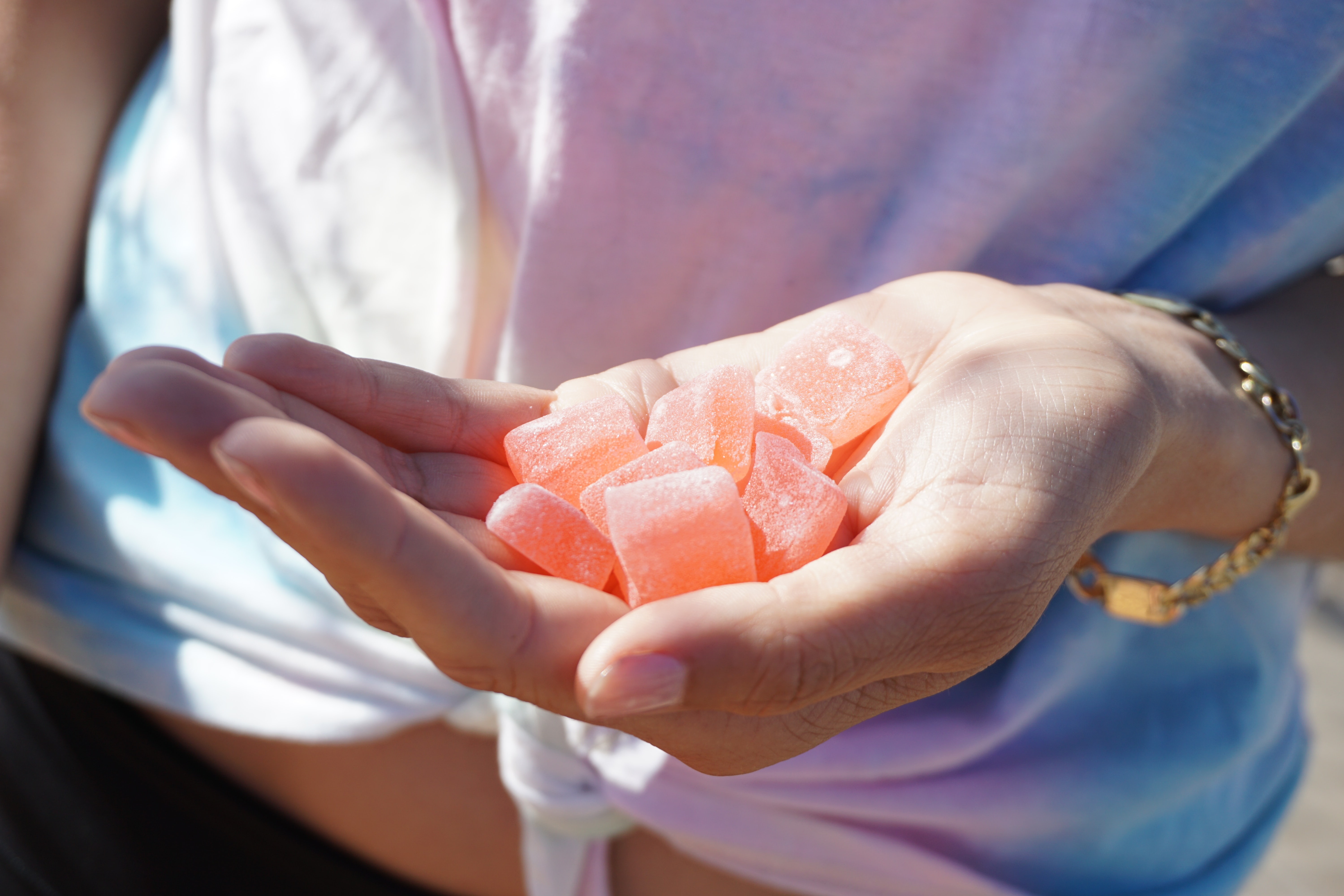
“Preliminary research suggests that CBD may be helpful in reducing both THC-induced anxieties as well as anxiety disorders, such as social anxiety disorder and generalized anxiety disorder,” says Dr. Corroon. “More research is needed to understand the magnitude of this effect, as well as the dosage, but it’s thought that CBD may achieve this through interactions with serotonin and/or GABA receptors in the amygdala and other areas of the brain involved in anxiety.”
In short, ingesting CBD oils, tinctures, gummies, and even smoking CBD-rich hemp flowers could help achieve anxiety-mitigating effects.
Seek Strains That Are Known To Alleviate Anxiety
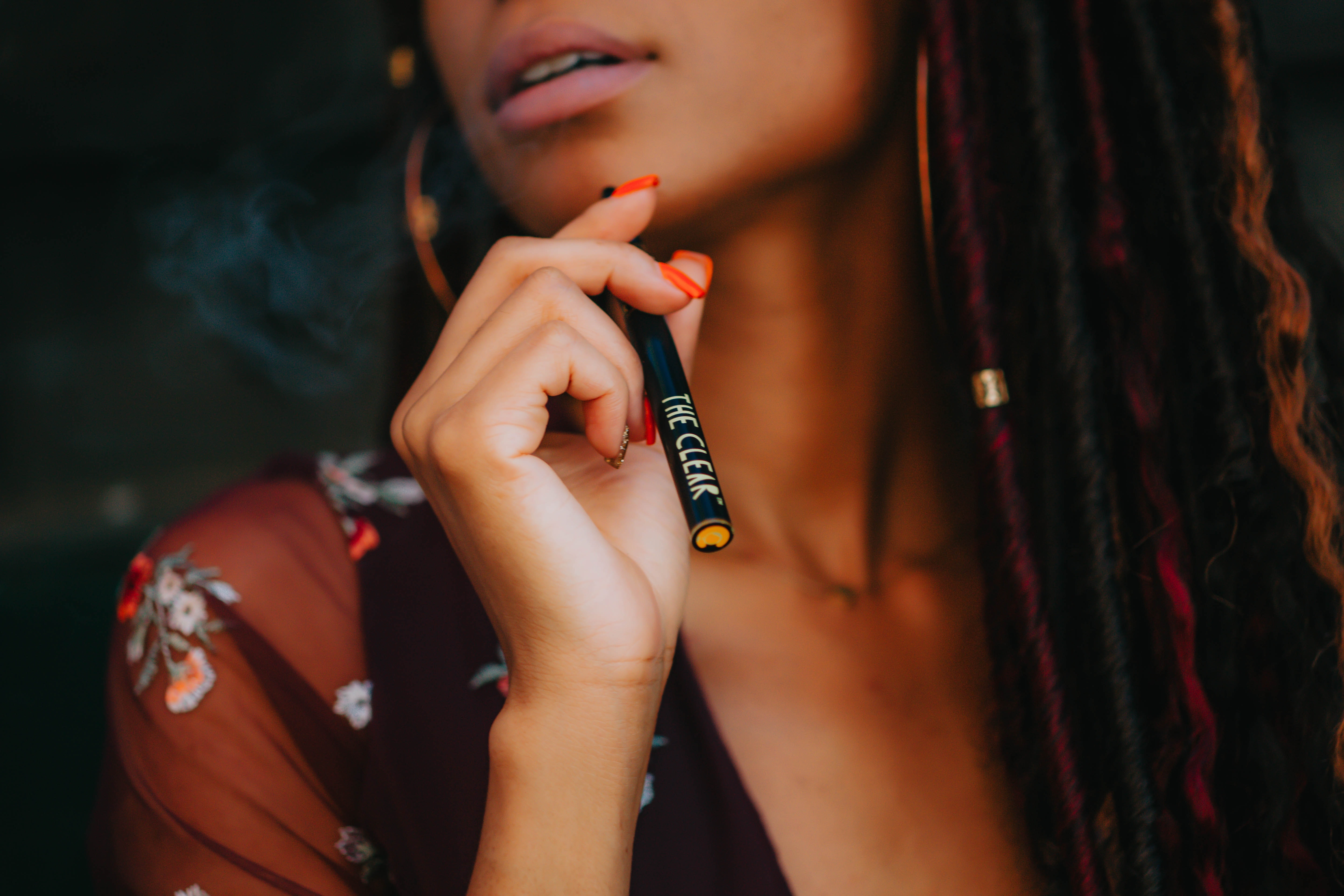
“A specific terpene can help and it’s alpha-pinene,” Chasen says. “Researchers suggest that pinene’s greatest therapeutic value is acting as an antidote to cannabis intoxication. Cultivars with high concentrations of alpha-pinene can reduce the likelihood that consumers will experience anxiety and/or brain fog,” she explains.
Pinene isn’t the most common terpene to express in the cannabis plant, though it is the most common terpene in the world. Two strains naturally high in alpha-pinene that are typically easy to find in stores include Big Smooth and Blue Dream.
Know That It Won’t Last Forever
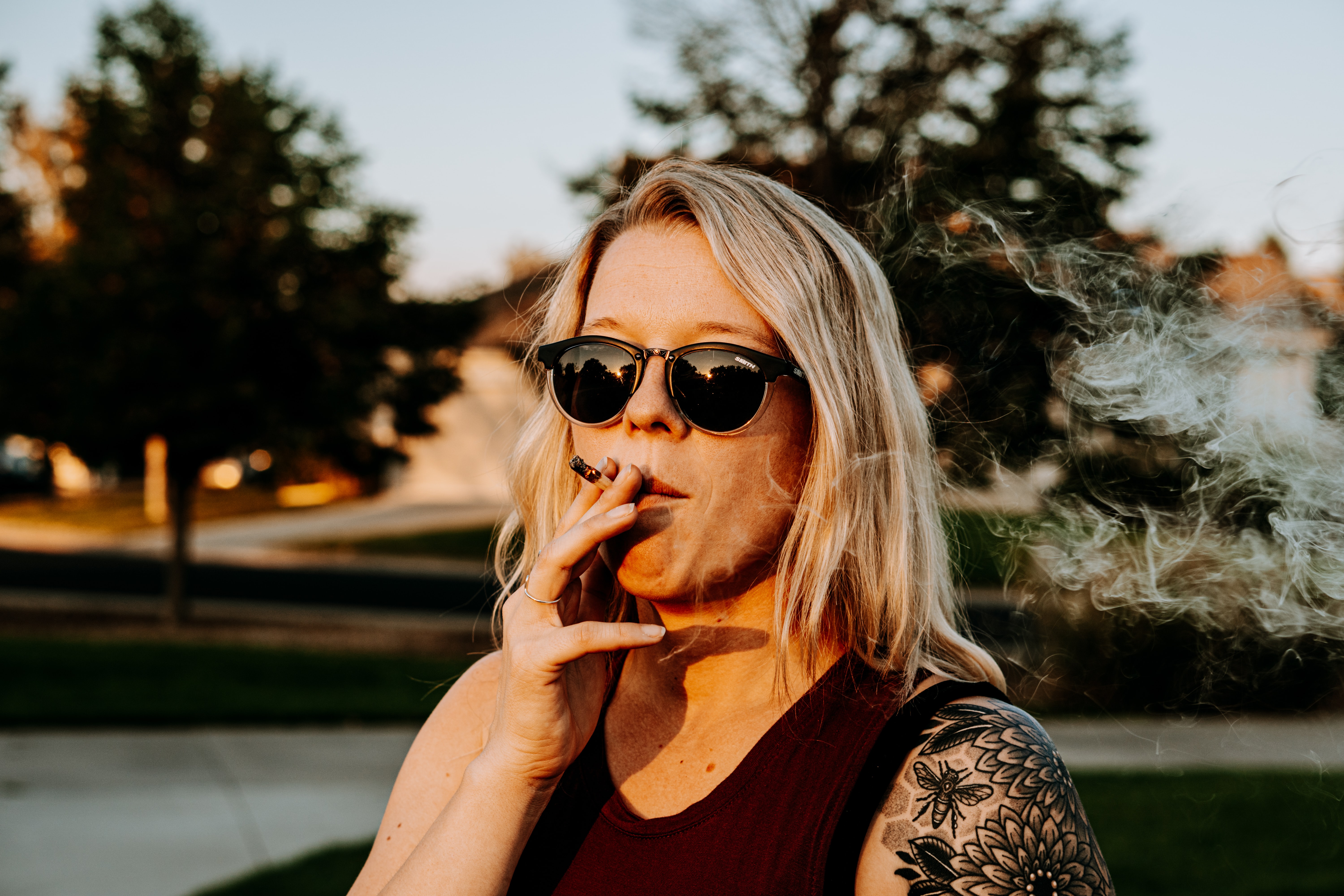
“Depending on how much THC you’ve consumed and the way in which you’ve consumed it, your brain will soon feel like your brain again,” Chasen reminds us. “When smoking, for example, you hit your peak high 15 minutes after inhalation, and then it’s back down to earth from there.”







